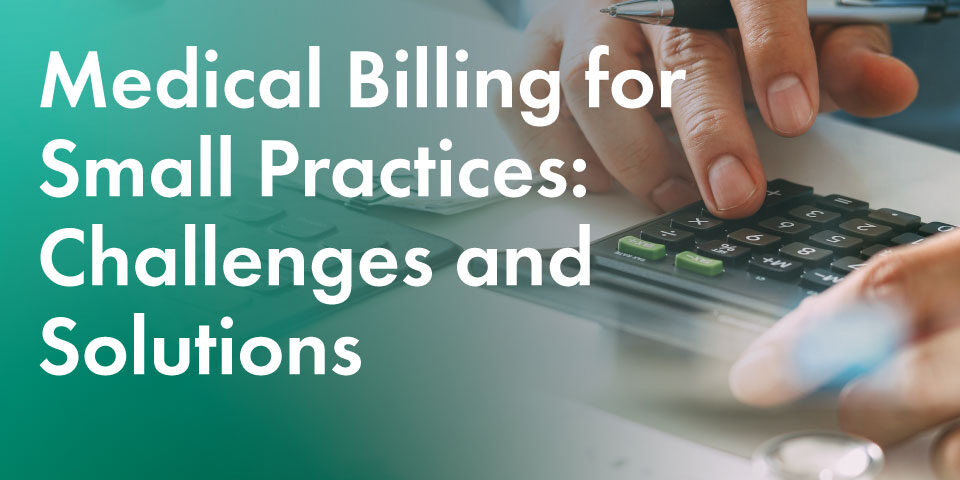Medical Billing for Small Practices: Challenges and Solutions

Medical billing is a critical part of healthcare administration that directly impacts the financial health of medical practices. Medical billers make sure providers get paid and patients are billed correctly. While large hospitals and healthcare centers often have dedicated billing departments, small medical practices face unique challenges when it comes to medical billing. In this blog post, we’ll explore the challenges faced by small medical practices and discuss potential solutions.
Challenges Faced by Small Medical Practices
-
Limited Resources:
Small medical practices typically have limited resources, including staff, technology, and cashflow. This can make it challenging to handle the complexities of medical billing effectively. Smaller practices often rely on manual data entry, but paper-based systems can lead to errors and inefficiencies, which in the end cost more.
-
Increasing Regulatory Demands:
The healthcare industry is subject to frequent regulatory changes, such as updates to coding and billing guidelines. Small practices may struggle to keep up with these changes due to limited resources for training and compliance.
-
Insurance Verification:
Verifying patients’ insurance coverage is one of the most important steps in medical billing. It’s how providers know that a patient’s insurance plan covers the care they provide. Small practices may not have dedicated personnel for this task, which can take most of the staff member’s workday to complete. Unfortunately, this can lead to issues with claim denials and delayed payments.
-
Inefficient Coding:
Accurate and efficient medical coding is essential for maximizing revenue because it’s how providers get paid. Medical coding is the process of translating diagnosis, procedures and medical services into standardized codes that are then sent to insurance providers. In small practices, coding errors and omissions can lead to claim denials, which means lost revenue and payment delays.
Solutions for Small Medical Practices
-
Outsourcing Medical Billing:
One of the most effective solutions for small practices is outsourcing medical billing to professional billing companies. These experts can handle coding, claims submission, and follow-up, reducing the burden on the practice staff. This is a good option for practices who can afford it. However, for practices with limited cash flow this may be harder to achieve.
-
Utilize Technology:
Investing in medical billing software can streamline billing processes and reduce your staff’s workload. These tools can automate many aspects of medical billing, reducing human errors and claim denial rates. This means increased revenue and cash flow, which will cover the cost of the software itself.
Good medical software solutions also offer regular updates to stay compliant with changing regulations, which means providers don’t have to worry about keeping up with regulatory changes.
-
Clear Patient Communication:
Improving patient communication is also key to reducing billing issues. Clearly explain billing and insurance processes to patients, be transparent about your costs and offer payment plans when necessary.
Offering various payment options to patients, such as credit card payments and online payment portals, can improve payment collection. Additionally, consider negotiating payment terms with insurance providers or explore the possibility of early payment discounts.
Conclusion
Medical billing for small practices has its own unique set of challenges, but with the right medical billing software, these challenges can be overcome. Practices can optimize their revenue and ensure financial stability while delivering quality healthcare services to their patients.



